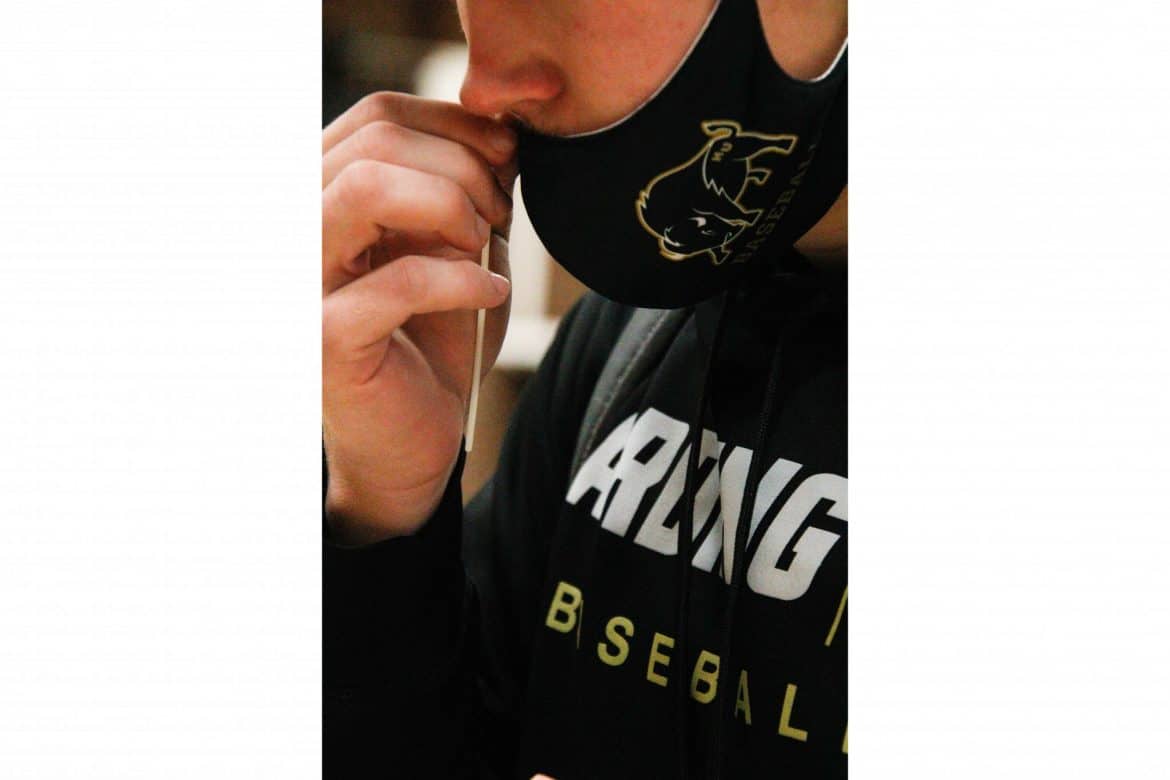Harding student-athletes, coaches and athletic staff receive COVID-19 testing on a weekly basis by the athletic training staff — a process new to the spring semester.
The athletic training staff administer PCR nasal-swab tests every Tuesday in the Rhodes-Reaves Field House, and from there, the tests are packaged, labeled and transported to Baptist Health Medical Center in Little Rock, Arkansas, to obtain the results. Lacy Rush, an associate athletic trainer, has spearheaded the testing, coordinator of sports medicine Eric Myers said.
The process for athletic testing at Harding changed from the fall to spring semester. In the fall, athletes were subject to symptomatic testing in which they were only tested if they showed symptoms or were listed as a close contact. The testing was performed by Student Health Services or an off-campus testing site. Now, teams undergo surveillance testing carried out by athletic staff.
“All the staff is pitching in,” Myers said. “Everybody follows up with their own teams that they cover and the cases they have on those teams.”
The change was made because the Arkansas Department of Health provides free testing kits to Harding, and they work in conjunction with Baptist Health, which provides the lab services for free.
NCAA sports are classified into three different categories: low, medium and high contact risks. Sports like football, soccer and volleyball classify as high contact risks while golf, track and field, swimming, and other non-contact sports classify as low risk. Different testing processes are used for high risks compared to low and medium risks. In high-risk sports, testing is carried out for the entire team on a weekly basis if the sport is in season. At Harding, three high-risk sports are being played this semester — basketball, soccer and volleyball.
For low and medium-risk sports, the NCAA guidelines require 25% of the team to be tested every other week.
“To stay on our every week test, for the ones who are just doing the 25% of their roster, we do an eighth of their roster every week, and that gets us to the 25% every two weeks,” Athletic Director and Head Men’s Basketball Coach Jeff Morgan said.
Off-season sports are not subject to weekly tests. Instead of surveillance testing, they use symptomatic. Athletes are exempt from testing if they have contracted the virus within the last 150 days and are not showing symptoms.
The COVID-19 tests have added another layer of “stress,” freshman men’s basketball guard Stetson Smithson said. Smithson is one of four basketball players that has to be tested every week.
“Each time it’s negative, you think [the next time you take the test], ‘This will be the time that I’m positive,’” Smithson said. “You’re just kind of thinking, ‘This is the one,’ and it’s mentally wearing on you the longer it goes.”
